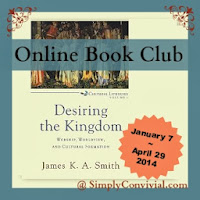This past week I have been thinking more about parenting. Mostly, thinking about how to parent my 2 yo now that I see some results with my 7 yo. When I saw this post about The Duties of Parents by J.C. Ryle I decided to dust off my copy (actually it is lost somewhere so I just downloaded it for free and am re-reading it.) Here are a few snippets:
And still for all this, the vast majority of children are manifestly not trained in the way they should go, for when they grow up to man's estate, they do not walk with God.Sometimes I easily forget that the good life is the one that walks with God - nothing less. I'm I aiming at that or a different definition.
Anger and harshness may frighten, but they will not persuade the child that you are right, and if he sees you out of temper, you will soon cease to have his respect.
Fear puts an end to openness of manner, - fear leads to concealment - fear sows the seed of much hypocrisy , and leads to many a lie.And this is where we are currently struggling. My temper and his!
It is just in the going forward that God will meet us. The path of obedience is the way in which He gives the blessing. We have only to do as the servants were commanded at the marriage feat in Cana, to fill the water-pots with water, and we may safely leave it to the Lord to turn that water into wine.
To pet and pamper and indulge your child, as if this world was all he had to look to, and this life the only season for happiness - to do this is not true love, but cruelty.How often do I act like this is the world we are aiming for - that this is the only kingdom. Yikes!
In speaking of Bible reading:
See that they read it regularly. Train them to regard it as their soul's daily food - as a thing essential to their soul's daily health. I know well you can not make this anything more than a form, but there is no telling the amount of sin which a mere form may indirectly restrain.
Prayer is the simplest means that man can use in coming to God. It is within the reach of all - the sick, the aged, the infirm, the paralytic, the blind, the poor, the unlearned - all can pray. It avails you nothing to plead want of memory, and want of learning, and want of books, and want of scholarship in this matter. So long as you have a tongue to tell your soul's state, you may and ought to pray.
See to it too, if it can be so arranged, that your children go with you to church, and sit near you when they are there. To go to church is one thing, but to behave well at church is quite another.
But so long as hearts are what hearts are, it is vain to suppose, as a general rule, that children can ever be brought up without correction.
Imitation is a far stronger principle with children than memory. What they see has a much greater effect on their minds than what they are told.
Remember the word that the conqueror Caesar always used to his soldiers in battle. He did not say "Go forward," but "Come." So it must be with you in training your children.
Promises were the only lamp of hope which cheered the hearts of the patriarchs before the Bible was written. Enoch, Noah, Abraham, Isaac, Jacob, Joseph, - all lived on a few promises, and prospered in their souls. Promises are the cordials which in every age have supported and strengthened the believer.How often do I not trust in his promises and whine about my situation.
It is not God's way to give everything at once. "Afterwards" is the time when He often chooses to work, both in the things of nature and in the things of grace. "Afterwards" is the season when affliction bears the peaceable fruit of righteousness (Heb. 12:11).
Sobering:
Children have ever been the bow from which the sharpest arrows have pierced man's heart.It is a quick read, but meaty. There are some parts I struggle with but it is a worthy read. To read what others have been reading check out Wednesday with Words.


